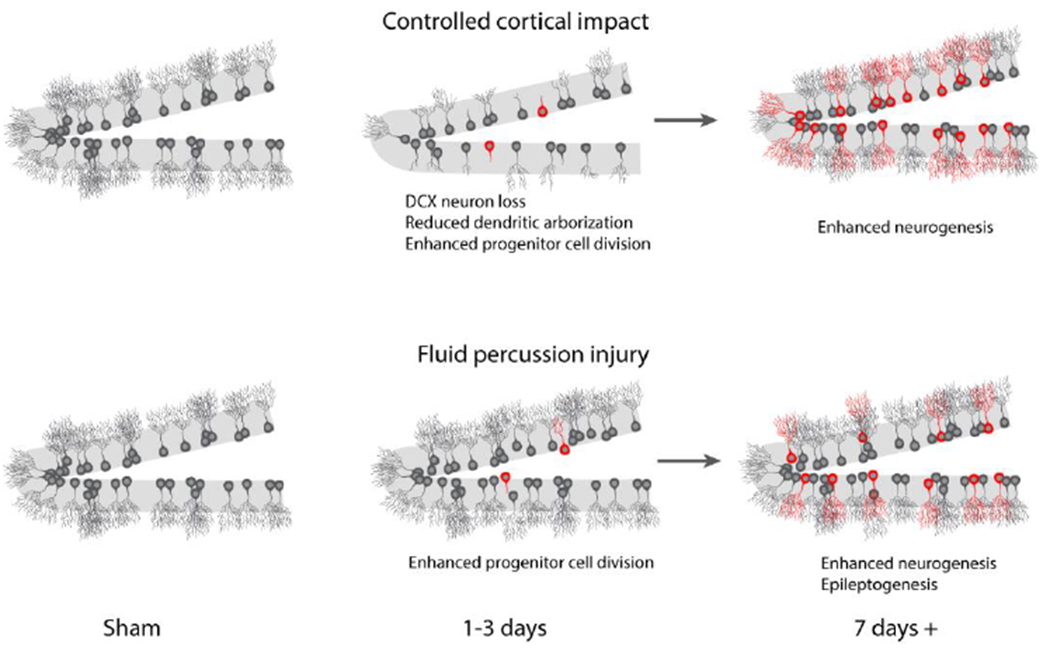Figure 3. Consequences of CCI and FPI on adult hippocampal neurogenesis.

A large body of literature indicates that controlled cortical im pact injury reduces the survival of newborn neurons within 1-3 days of injury. This reduction in DCX-positive neurons (shown in grey) has been observed in rats, mice, and New Zealand rabbits both ipsilateral and contralateral to the injury. Furthermore, CCI also reduces dendritic arborization of the surviving newborn neurons at these acute time points. Concurrent with this loss of newborn neurons, examination of BrdU incorporation (indicated in red) has revealed that enhanced proliferation of neural progenitor cells occurs as early as 24 hrs post-injury. A large percentage of these cells fail to make synaptic connections with CA3 neurons, and undergo apoptosis. Both the surviving newborn neurons (generated prior to injury) and the newly generated neurons (indicated in red color) can mature into granule neurons and incorporate into the hippocampal circuit by 3-6 weeks post-generation. Fluid percussion injury does not appear to cause acute loss of doublecortin-positive cells, but does result in enhanced progenitor cell proliferation. Although generally thought to be a reparative mechanism, enhanced neurogenesis has been reported to potentially reduce the threshold for seizure activity.
